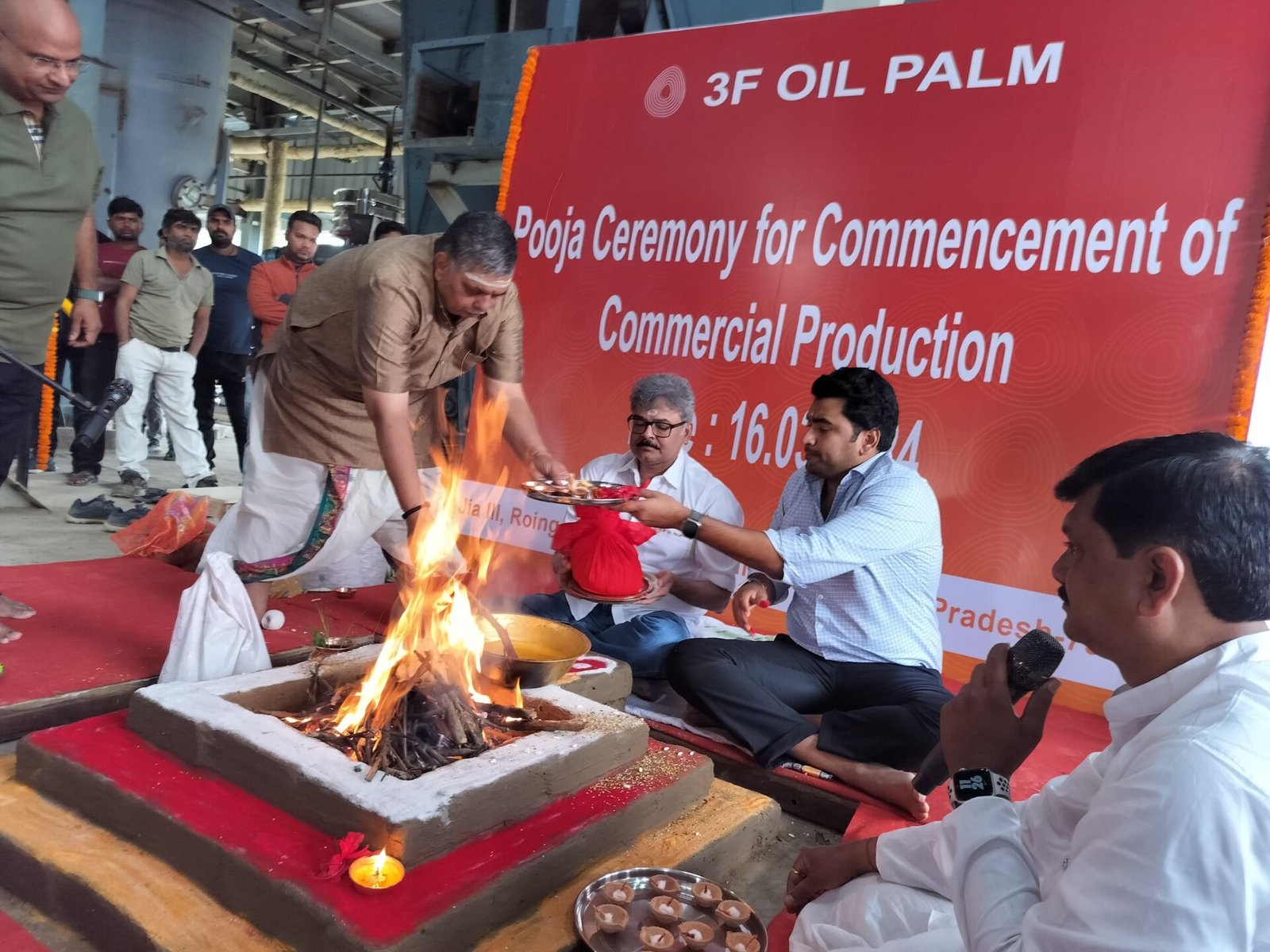HT Digital
Friday, October 18: The Tripura government has signed a Memorandum of Understanding (MoU) with Patanjali Foods Limited to significantly boost industrial investment and create employment opportunities in the state by ramping up palm oil production. This collaboration marks a key initiative under the National Mission on Edible Oils and Oil Palm, an ambitious national program aimed at increasing the production of edible oils and reducing the country’s dependence on imports. The agreement is seen as a strategic move for both the state and Patanjali, aiming to harness Tripura’s potential for palm oil production while benefiting the local economy.
On Tuesday, Tripura Chief Minister Manik Saha shared on social media platform X that the MoU between the state’s horticulture department and Patanjali Foods represents a “significant milestone” in boosting palm oil production in the region. The state is targeting 1,124 hectares of land for palm plantations, with an impressive 760 hectares already covered under the initiative. This development is part of the state government’s broader objective of increasing agricultural productivity while simultaneously boosting industrial growth.
Ashok Kumar Singh, the Northeast Head of Patanjali Foods, held discussions with Chief Minister Saha at his official residence regarding the future prospects of oil palm plantations in Tripura. These discussions focused on the potential for commercialization of palm oil, with Singh outlining the company’s plans to establish a processing unit within the state. The processing unit is a key part of Patanjali’s strategy to expand its palm oil operations in Tripura, ensuring the state not only grows but also processes palm oil for both domestic consumption and potential export markets. The company is currently in the process of procuring land for this new facility.
Beyond palm oil production, Patanjali has expressed interest in further agricultural developments in Tripura. The company revealed plans to establish a model oil palm nursery in the state to encourage sustainable agricultural practices. This nursery would help promote high-quality palm oil production by providing local farmers with the necessary resources and support to cultivate oil palms effectively. In addition to this, Patanjali aims to create model gardens on neem plantations, another important agro-forestry initiative that aligns with the state’s environmental and economic objectives.
Intercropping practices are also being introduced as part of the initiative, with the integration of crops like ginger, a step that will provide local farmers with additional income streams and further diversify Tripura’s agricultural output. Intercropping not only helps in maximizing land use but also ensures that the risks associated with relying on a single crop are minimized. This diversification strategy is expected to yield long-term benefits for the farmers by creating a more resilient agricultural economy.
Patanjali Foods Limited also hinted at its plans to enter the bamboo and horticulture product markets in Tripura, further enhancing its engagement with the state’s rich natural resources. Bamboo is a versatile resource and has strong potential in industries such as furniture, paper, and handicrafts, while the horticulture sector provides a wide range of marketable produce, from fruits to spices. These initiatives are part of Patanjali’s broader vision to create a self-reliant agricultural ecosystem in the region, while simultaneously addressing market demand for eco-friendly products.
The government has welcomed this initiative, particularly for its potential to uplift the socio-economic conditions of farmers in the state. The collaboration with Patanjali is expected to provide farmers with much-needed technical assistance, infrastructure support, and access to markets, ensuring they benefit from increased production and commercialization of palm oil and other agricultural products. Additionally, the establishment of a processing unit will create jobs and improve the local economy by offering direct employment and enhancing agricultural supply chains.
In conclusion, the partnership between the Tripura government and Patanjali Foods Limited is a significant step forward in the state’s agricultural and industrial development. By focusing on palm oil production and diversifying into other sectors like bamboo and horticulture, the initiative not only supports farmers but also positions Tripura as a key player in India’s agricultural economy. The collaboration is poised to generate employment, boost local industries, and contribute to the state’s overall economic growth.







